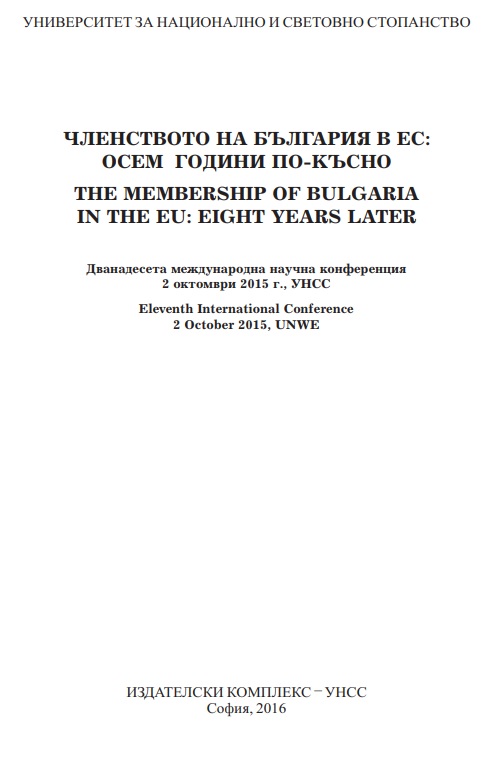Преките чужди инвестиции в България след приемането на страната в Европейския съюз
Foreign Direct Investments in Bulgaria After the Accession of the Country in the EU
Author(s): Oleg Lozanov
Subject(s): Economy, National Economy
Published by: Университет за национално и световно стопанство (УНСС)
Keywords: Bulgaria; Foreign Direct Investment; FDI; European Union
Summary/Abstract: The article reviews the dynamics of the foreign direct investments (FDI) in Bulgaria after its accession to the European Union. The author analyses historical data from the '90s when the process of an economic transformation of the country from a state-controlled economy (pre-1989) into a capitalistic market model (post-1989) was initiated. The empirical data covers a period as early as 1996 till 2014. The main focus in this research is to review the progress, the form, the source and the implications of the FDI which would assist in determining trends, issues and conclusions. Author notes increase in the FDI activity after the year of 1997 when significant policy reforms were achieved in terms of institutional capacity, legal framework, governance and harmonization with the international practices – a currency board, anti-inflationary measures, denomination of the Bulgarian lev, development of the Bulgarian Stock Exchange and, since few years earlier – the establishment of a dedicated government agency to support foreign investors. FDI are peaking in the time frame 1997-2002 as well as 2003-2005 and 2006-2007 while 2008 brings less foreign investments – a trend that remains constant till the end the observed time period. This paper discusses certain specifics about the FDI in Bulgaria, origin of the investors and it suggests about the implications on the Bulgarian economy as a result of the different businesses subject of foreign investors’ interests.
Book: Членството на България в Европейския съюз: осем години по-късно
- Page Range: 33-42
- Page Count: 10
- Publication Year: 2016
- Language: Bulgarian
- Content File-PDF

